Cricotopus shilovae Zelentsov 1989
(By Andreas Plank from 25. March 2008, last modified 19. March 2019)
Solved ;-). History of this specimen:
- Cricotopus-Orthocladius indet 1
- Cricotopus shilovae Zelentsov 1989
Thanks to HQ Tang for submitting the paper of Zelentsov 1989!
I posted this taxon also for the revision of the Holarctic larval key and Ole A. Sæther mentioned: «It seems that Zelentsov 1989 place the species in the subgenus Isocladius and that it could be identical to C (I.) perniger (Zetterstedt).»
Below you can read older comment.
Characters
- premandible 1+1 (apical+large basal);
- seta S1 1;
- mentum: dark brown-black, 1 middle tooth, 6 lateral teeth, submental setation below 5th lateral tooth,
- mandible 3.5-1-0-0 strongly engraved at outer margin;
- antenna: RO-ratio (RO/ant-1st) ~0.22, blade ratio=1 i.e. as long as remainig antennal segments
- postoccipital margin darkbrown-black
Labrum (specimen 1, 4th instar):
(Click on the image to slide through)
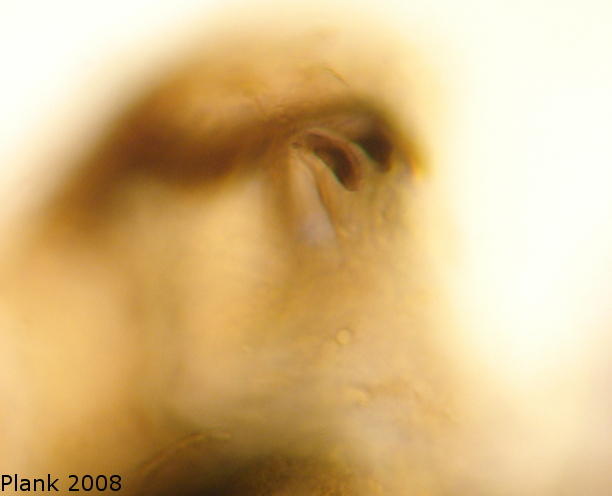
4th instar (specimen 2)
Head
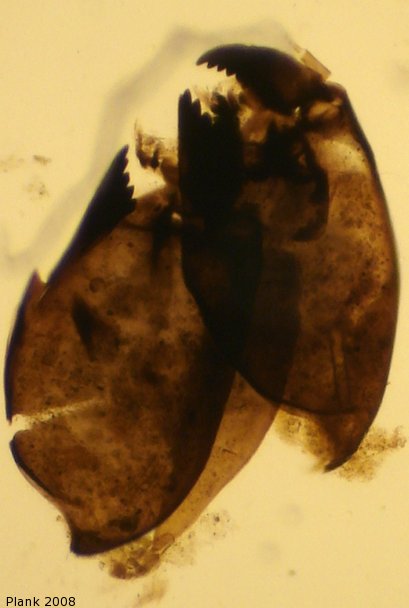
Mandible
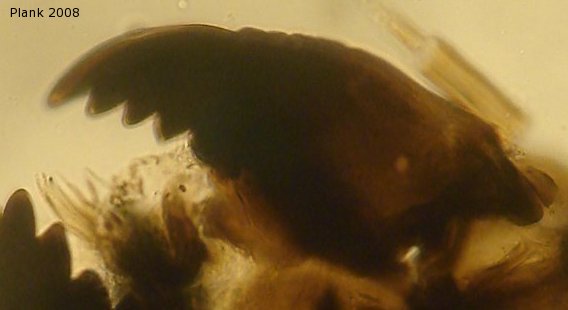
Maxilla
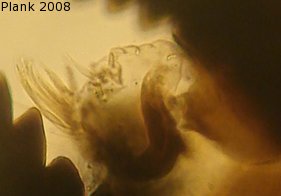
Premandible
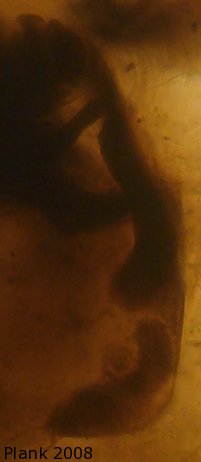
Antenna

Head (specimen 3, 4th instar):
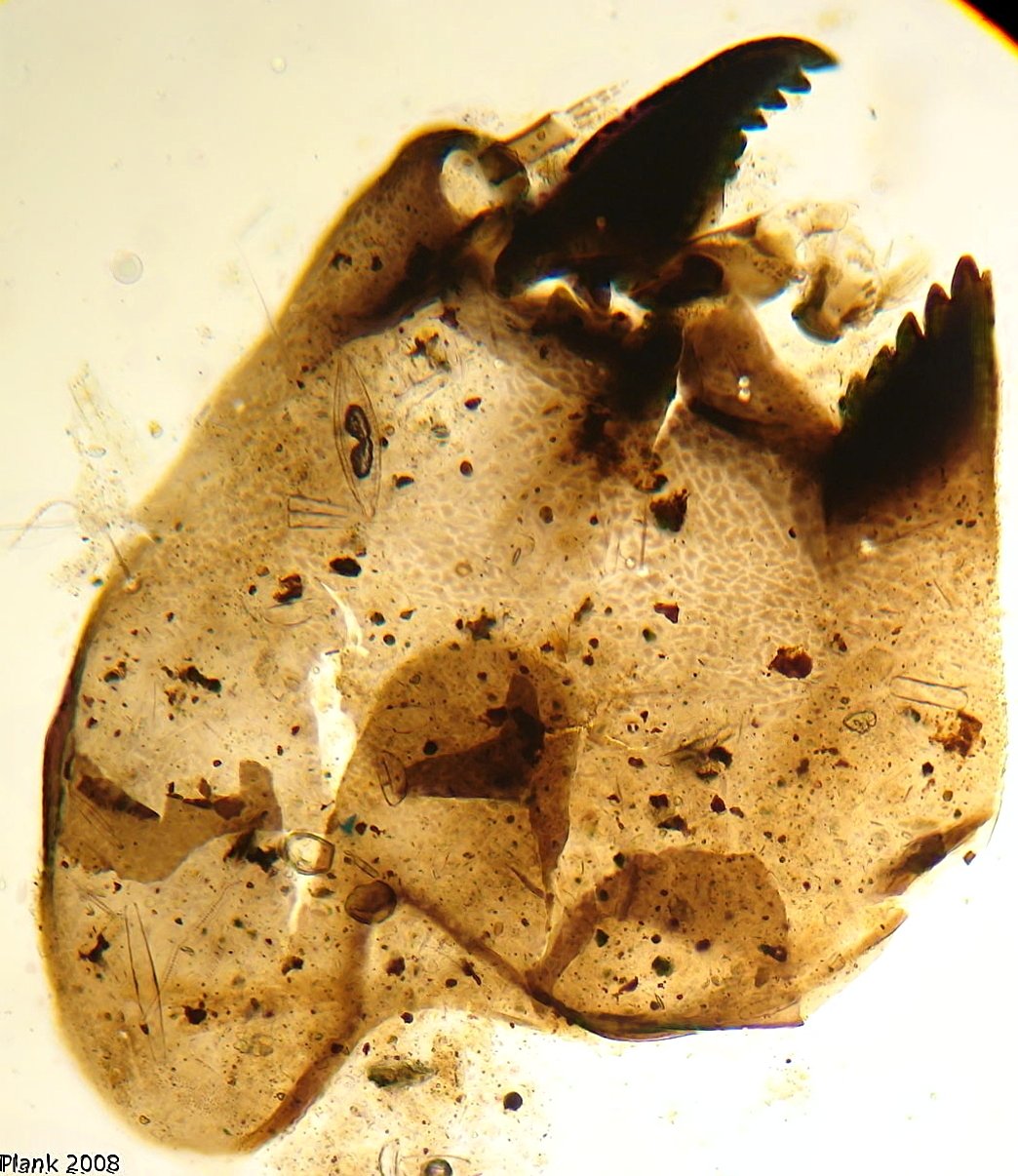
Head (specimen 4, 3rd instar)
(Click on the image to slide through)
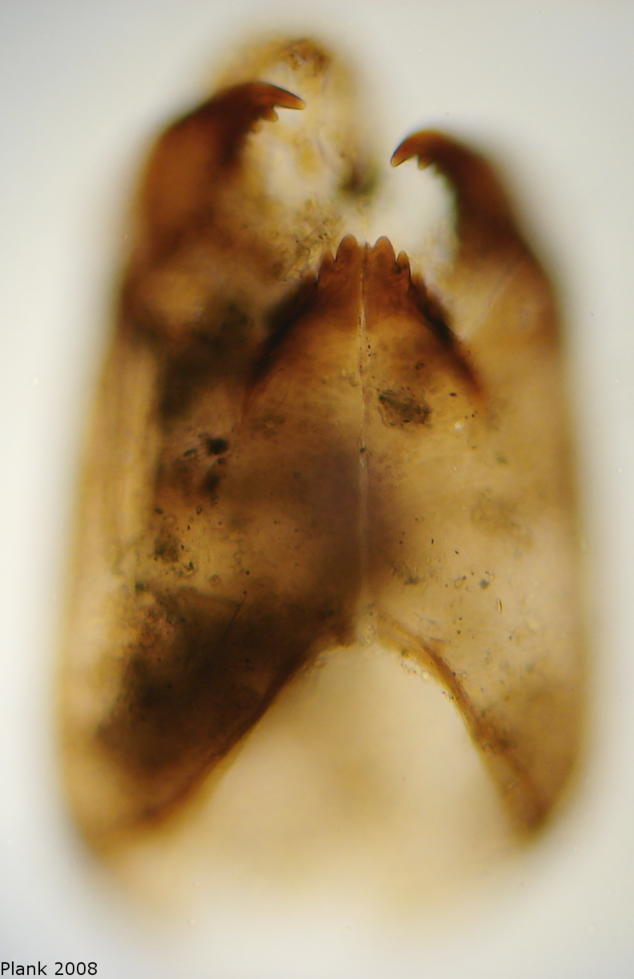
Old Comments
HQ Tang wrote at Tuesday, 15th April 2008 11:39:08 (GMT)
This species is a typical high-altitude speices, the median mental tooth is not very clear, it should be a small one, low than first laterals, the mentum will be a little like "Brillia flavifront, also, the special scale spot on the last picture shows that it may be Cricotopus shilovae Zelentsov 1989. You can compare you subfossil with this article. Or give me a complete mentum picutres.
HQ Tang wrote at Wednesday, 16th April 2008 00:09:05 (GMT)
I think my above supposition is right, some Brillia-complex also have this kind of mentum, but its location of seta submenti is very low, near the POP area, while in C. shilovae, the seta submenti is only a little beyond the mentum. Also, if you have remdant body, you can check the seta tufts on the abdomen. Sometimes, this species is very dominent in certain area, if you find some related key environment factors, would you like let me know?